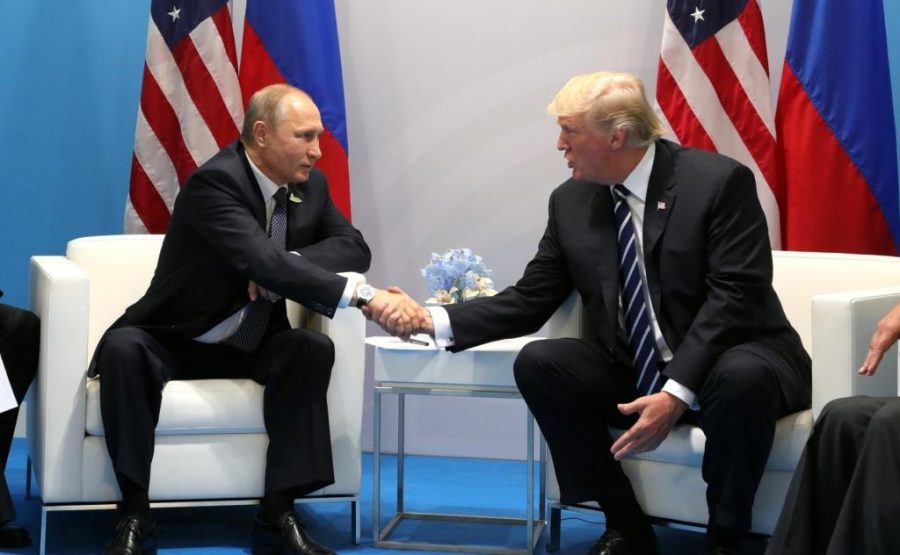In February 2017, in an interview with Bill O’Reilly, Donald Trump was asked about Vladimir Putin and his status as a “killer,” presumably referring to the Russian president’s history of violence against his political opposition and the invasion of Crimea in 2014. Trump responded in his signature voice, claiming, “There are a lot of killers. We got a lot of killers. What, you think our country is so innocent?” Publicly and politically recognizing our own moral fallibility could have some dangerous consequences for US foreign policy along with our own domestic politics.
Since the end of the Second World War, United States foreign policy has been riddled with controversial and often secret involvement in the affairs of other nations. Whether it’s the CIA’s operations in Central America, the assassination of Patrice Lumumba in the Democratic Republic of Congo (DRC) or the recent invasion of Iraq, the United States has never hesitated to murder, cheat or steal to protect their interests abroad.
To present the United States as an unblemished moral authority is a stretch, but it is a standard posture. Donald Trump is one of the few Americans, and certainly the first president in a long time, to choose not to uphold this façade. I do not believe that his refutation of America’s innocence stems from some moral outrage at the past behavior of the United States but rather a desire to reduce the differences between the US and Russia and thus allow for increased cooperation between the two states.
But there is a crucial difference between the United States and Russia. While the United States has actively engaged in the same type of international meddling as Russia, our own domestic politics have remained largely free from the internal interference practiced by the Putin regime. Freedom House compiles a report each year in which they assign a score out of one hundred to each country around the world. This “score” is an amalgamation of different categories such as civil liberties, organizational rights, rule of law etc. that together constitute a ‘free nation’. Russia’s holistic score is 22/100 while the US boasts a strong 90/100 (Freedom House 2016). Indeed, Putin has a vice grip on the electoral processes and the media, while citizens have little room for freedom of expression or the ability to stand against the Putin regime (Freedom House 2016). Alternatively, the US political system, despite growing influence by large corporations, remains strong in the rights it guarantees to citizens and its ability to conduct free and fair elections.
If we don’t see Putin’s violent dictatorial style of rule as an obstacle to cooperation, and, in fact, fail to criticize his behavior all together, we invite a steady erosion of democratic politics at home and an increase in immoral behavior in our foreign policy. Our ‘commitment’ to the false notion of American moral superiority keeps us relatively checked, for now.



Erin O'Connell • Sep 12, 2017 at 11:54 am
Excellent editorial essay, Mr. Foglesong! I appreciate your ability to untangle this odd moment in presidential opining.